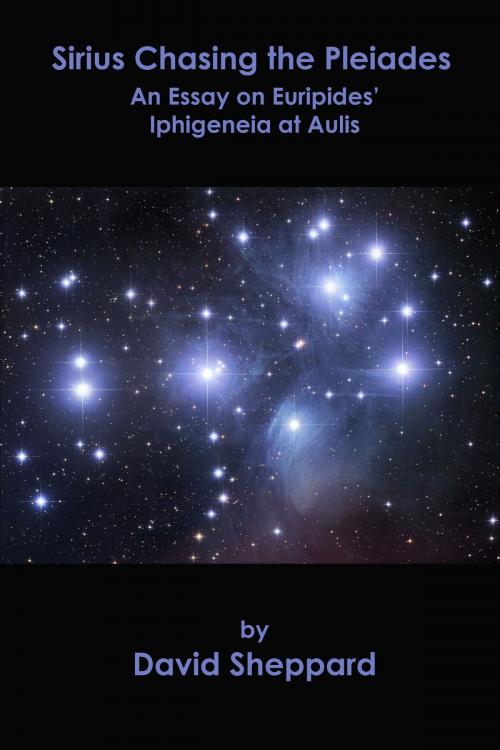Sirius Chasing the Pleiades, An Essay on Euripides' Iphigeneia at Aulis
Fiction & Literature, Essays & Letters, Essays, Nonfiction, Reference & Language, Education & Teaching| Author: | David Sheppard | ISBN: | 9781301087518 |
| Publisher: | David Sheppard | Publication: | July 27, 2013 |
| Imprint: | Smashwords Edition | Language: | English |
| Author: | David Sheppard |
| ISBN: | 9781301087518 |
| Publisher: | David Sheppard |
| Publication: | July 27, 2013 |
| Imprint: | Smashwords Edition |
| Language: | English |
I’ve always viewed the constellations as rather paper doll-like, static images pinned against the blackness of the night sky, but a few evenings ago while surveying the heavens for a night’s viewing, I spotted the star Sirius and started wondering about a passage in Euripides’ play, “Iphigeneia at Aulis,” that seemingly serves no narrative purpose. The tragedy concerns the Greek fleet prior to sailing for Troy to fight the Trojans and return Helen to Sparta. At the beginning of the play, Agamemnon, commanding general of the Greeks and father to Iphigeneia, paces outside his tent just before daybreak. He calls to an old servant to join him, and this short exchange occurs before more weighty concerns:
Agamemnon: What star is that, steering his course yonder?
Old Man: Sirius, pursuing the Pleiades sevenfold path, still traveling high at this hour.
I finally surrendered to the temptation to investigate this seemingly trivial passage, and what follows are the startling revelations concerning Euripides and his play that I uncovered.
I’ve always viewed the constellations as rather paper doll-like, static images pinned against the blackness of the night sky, but a few evenings ago while surveying the heavens for a night’s viewing, I spotted the star Sirius and started wondering about a passage in Euripides’ play, “Iphigeneia at Aulis,” that seemingly serves no narrative purpose. The tragedy concerns the Greek fleet prior to sailing for Troy to fight the Trojans and return Helen to Sparta. At the beginning of the play, Agamemnon, commanding general of the Greeks and father to Iphigeneia, paces outside his tent just before daybreak. He calls to an old servant to join him, and this short exchange occurs before more weighty concerns:
Agamemnon: What star is that, steering his course yonder?
Old Man: Sirius, pursuing the Pleiades sevenfold path, still traveling high at this hour.
I finally surrendered to the temptation to investigate this seemingly trivial passage, and what follows are the startling revelations concerning Euripides and his play that I uncovered.















